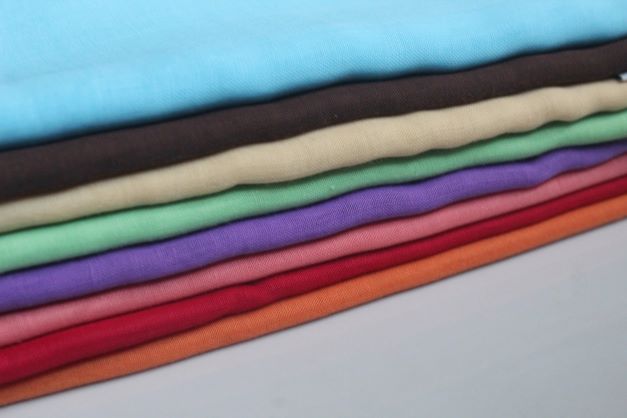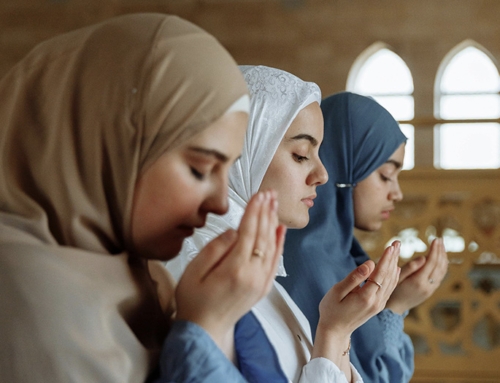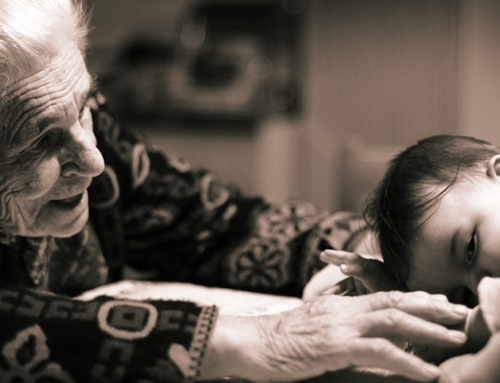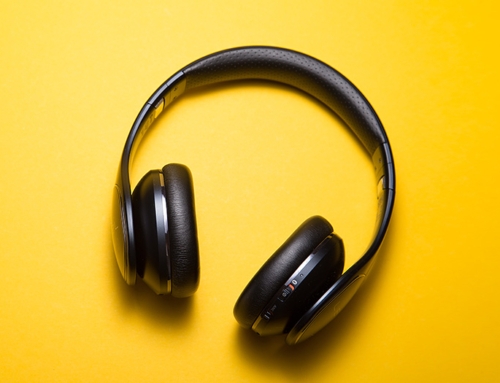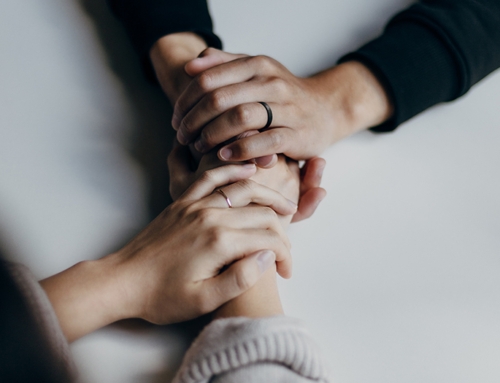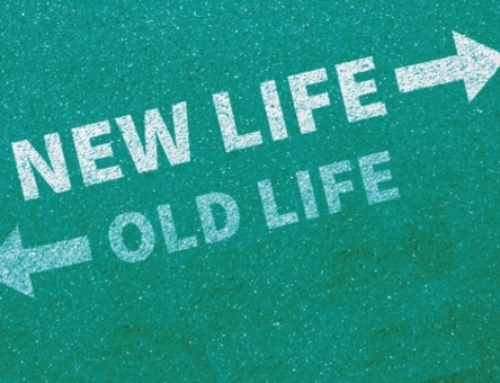By: Laura El Alam
I’m Considering Becoming a Muslim, but I’m Hesitant About Wearing Hijab. What Should I do?
For women in the West who decide to embrace Islam, wearing a headscarf (also called hijab or khimar) can be the most difficult step. There may be various reasons why a woman hesitates to cover her hair.
Over the years, fellow converts have told me:
- I’m not ready to tell everyone that I’ve become a Muslim, but a headscarf will effectively make that announcement to the world.
- What if I’m harassed or discriminated against because of hijab?
- I’m a feminist and I’ve always associated modest dress with oppression.
- I’m afraid my loved ones will think I’m “un-American.”
- I just don’t feel like my true self with a headscarf because it’s not part of my culture or heritage.
- Won’t it be hot or uncomfortable?
- Someone told me that hijab isn’t really mandatory. Lots of Muslim women don’t cover their hair. Why should I?
Embracing Hijab: Overcoming Challenges with Confidence
First I would like to say that these feelings are normal and human. You’re not a weak Muslim if you’re a convert who’s struggling with the idea of committing to hijab. It can be difficult to make significant, visible, deeply personal changes, and wearing hijab takes courage and determination. When I was learning about Islam over twenty years ago, one of my first comments was, “I could never wear a scarf or give up my blue jeans and T-shirts!”
Spoiler alert: I’ve been wearing hijab for nearly 23 years, and I’ve found a modest way to incorporate my favorite T-shirts and jeans!
Prioritizing Faith Over Hijab: A Journey of Conviction and Personal Growth
Back then, when I voiced that emphatic no to hijab, my husband gave me excellent advice. He said, “Don’t focus right now on details like hijab. Ask yourself first if you believe in One God, because that’s step one. If you do, then look at what the Quran and the Prophet Muhammad (peace be upon him) say. If you are convinced of them, then you are a Muslim. Once you believe in Islam, you can focus on the details, including hijab. But deal with the first things first.”
He was right. Once my intellect was convinced of Islam, I genuinely wanted to please my Creator. To do that, I realized I needed to follow His instructions, whether they fit my preferences and lifestyle or not. Hijab became one of the many acts of worship that I performed with the hope of earning Paradise. My modest dress also became a “uniform” that reminded me daily of who I was and the ideals I represented as a visible Muslim.
Embracing Change and Personal Growth: The Hijab Journey
But let’s be real. Hijab took some getting used to. For a few months, when I looked in the mirror, I hardly recognized myself. Occasionally I did feel awkward, afraid, self-conscious, and yes, hot. Over time, though, hijab became part of my identity, like a second skin. I learned to embrace it – including the challenges it posed, the sacrifice it entailed, and the personal growth it required of me. I do not resent my headscarf. In fact, I cherish it now. I think it has made me a stronger person. Most of all I hope God will accept it from me and reward my intentions to obey Him.
Let’s discuss the reasons why some women hesitate to wear hijab and some possible solutions.
-
I’m not Ready to Tell Everyone That I’ve Become a Muslim, but a Headscarf will Effectively Make That Announcement to the World.
Yes, likely you will be recognized as a Muslim as soon as you start wearing a headscarf. Unlike modest clothing alone (loose pants or a skirt, long-sleeved shirts) which might allow you to fly under the radar, a headscarf marks you clearly as a Muslim. In fact, Allah tells us in the Quran that being recognized as a Muslim is one of the main reason for hijab:
“O you Prophet, say to your spouses and your daughters and the women of believers, that they draw their outer garments closer to them; that will (make) it likelier that they will be recognized and so will not be hurt. And Allah has been Ever-Forgiving, Ever-Merciful.” (33:59)
Our hijab lets others recognize us as followers of Islam, and that’s a good thing! In my experience, the sooner we openly present ourselves to the world as a Muslim, the sooner we gain confidence and comfort with our Muslim identity. It won’t happen overnight, and it will take time and grit. But it won’t ever happen if we don’t take the first, courageous step and embrace our hijab. Many women want to wait until they feel “strong enough” to cover their hair. I would argue that the strength comes after you do it.
That said, the most crucial part of being a Muslim is not hijab. Rather, it is the firm belief that there is One God, Allah, and that Muhammad (peace be upon him) is His prophet. Do not let hijab be the one obstacle that stops you from taking the step that your heart has already accepted. If you need to ease your way into Islamic dress code, that is definitely better than not becoming a Muslim at all!
-
What if I’m Harassed or Discriminated Against?
Sadly it is true that some women are treated unfairly or even violently because of their headscarf. In the United States, there are laws in place to ensure the right to practice one’s religion. For instance, The First and Fourteenth Amendments of the U.S. Constitution bar federal and state governments from making laws or rules that specifically prohibit women from practicing hijab.1 Knowing your rights and insisting on them can help protect you from many forms of discrimination, especially in the workplace.
As for harassment, it is a tragic and inexcusable reality that women frequently face it no matter what they wear. According to a 2018 study, “81 percent of women had experienced some form of sexual harassment during their lifetime” including “verbal forms of sexual harassment, like being catcalled or whistled at or getting unwanted comments of a sexual nature. It also includes physical harassment, cyber harassment and sexual assaults.”2 Whether they are covered from head to toe or wearing jeans and a T-shirt, far too many women find themselves mistreated, verbally abused, sexually harrassed, and even assaulted. What is the solution? Men need to be taught to respect women no matter what they wear or what religion they practice. There is no excuse whatsoever for harassment of any kind. But until the world is a safer place, all women – including those with hijab– will need to make judicious decisions and try their best to be safe.
-
I’m a Feminist and I’ve Always Associated Modest Dress with Oppression.
Have you ever asked yourself why it is considered “liberating” in the modern Western world for women to expose their bodies, but “oppressive” when they choose to cover up? Who came up with this idea, and why? A former feminist myself, I think it is worth pondering who is benefitting when fashions expose women’s bodies and make them into sexual objects. Would most women freely choose to wear styles that require an idealized body shape with no signs of flaws or aging? Would they force their feet into high heels, diet their way into bikinis and mini skirts, pay thousands of dollars for liposuctions, tummy tucks, and breast implants. . . . just for personal fulfillment? If no one was judging their exposed body–if their clothes were not designed to reveal so much– would they feel the need to invest so much time in perfecting it? Are women unwittingly accepting the idea that they are sex objects whose duty is to fit the impossible ideal society has forced upon them, subtly and overtly, since the day they were born?
I’ve come to see modest dress as a way of saying, “My body is off limits and not for public consumption. I refuse to be a sex object. You must judge me for my intellect, my contributions, my personality, and my soul.” That is an empowering mindset.
-
I’m Afraid my Loved Ones Will Think I’m “un-American.”
One of the most harmful Islamophobic stereotypes is that Muslims aren’t true Americans. In fact, according to historians, “The history of American Muslims goes back more than 400 years.”3 Not only have Muslims been here a long time, our numbers are growing exponentially. According to the Pew Research Center, “By 2040, Muslims will replace Jews as the nation’s second-largest religious group after Christians. And by 2050, the U.S. Muslim population is projected to reach 8.1 million, or 2.1% of the nation’s total population — nearly twice the share of today.”4
While it is not our responsibility to prove to others that we are American enough, (or American at all), we can often shut down rude people by posing a question. “So, who is American?” Perhaps as they struggle to answer this question, they will see the fallacy in their belief that “true Americans” are all one color, one religion, one culture.
-
I Just Don’t Feel Like My True Self With a Headscarf Because it’s Not Part of My Culture or Heritage.
If you grew up in the United States, a headscarf will probably feel foreign at first. However, many new converts don’t realize that they don’t have to dress in other cultures’ clothing to be a Muslim. With some creative thinking, they can blend their personal style with Islamic standards and come up with a wardrobe that is both modest and reflective of their personality and homeland. American Muslim women don’t have to wear clothes from overseas! They can often find clothing at local department stores that fulfill Islamic requirements. Flowing tunics, palazzo pants, long skirts, dresses, cardigans, wide-leg jeans, trench coats, blazers, and accessories can all be combined in creative ways that honor their inner fashionista while still fulfilling modesty requirements.
Take it from this Muslim woman who wears wide-leg jeans, flannel shirts, Converse sneakers, and a headscarf: you can still be you, even with hijab.
-
Won’t it be Hot or Uncomfortable?
Yes, sometimes you’ll feel uncomfortably hot. On those days when you do, almost everyone around you will be overheated, too, no matter what they’re wearing. Most of the time, you’ll forget you’re even wearing hijab. It’s not as uncomfortable as you might think, especially with the wide variety of fabrics that are now available. You can buy lightweight scarves for hot summer days and heavier ones that will keep the winter chill off your head, ears, and neck.
-
Someone Told Me That Hijab isn’t Really Mandatory. Lots of Muslim Women Don’t Cover Their Hair. Why Should I?
Be careful where you get your advice. Not every Muslim you meet is a scholar who is qualified to explain Islamic rules. In fact, most of us are not! Hijab has been considered mandatory by scholars throughout Islamic history. Are there some Muslim women who attempt to argue against it? Yes, there are, and they make up a tiny minority. The majority of Muslim women admit that hijab is required by God but just choose not to wear it. You see, converts are not the only ones who struggle with implementing the Islamic dress code. Many women–including sincere believers– fight an internal battle between wanting to appear attractive and/or assimilated to their culture and following God’s command.
Making Informed Hijab Decisions: Quran, Sunnah, and Personal Reflection
Do not make your decisions on hijab based on what untrained people think. Read God’s words in the Quran and study the Sunnah of the Prophet (peace and blessings be upon him). Listen to lectures by trusted scholars, and make your final decision on hijab based on solid research and honest soul-searching.
Most of all, remember that hijab is one detail – one particular act of worship – in Islam. If you’re new to the faith, focus on the first things first – your belief in Allah, His Prophet (peace be upon him), and the Quran. As you gradually form your Islamic identity and face decisions along the way, keeping one thing in mind will help guide your choices: a sincere attempt to please God will never be the wrong answer.
Author bio: Laura El Alam is the author of over 100 published articles and has written a children’s book, Made From the Same Dough, due to be released in 2023. You can visit her online at www.seaglasswritingandediting.com.
Footnotes
1 https://www.aclu.org/other/discrimination-against-muslim-women-fact-sheet
Got Questions?
We have Answers. Get in touch now.


